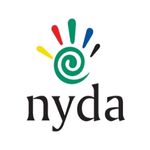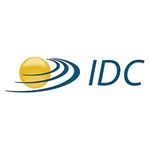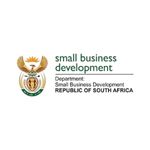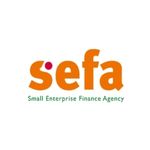
Youth grants in South Africa provide vital support to individuals under 35 and organisations working with young people. These funding opportunities are designed to reduce barriers to education, encourage entrepreneurship, and promote skills development in a country where youth unemployment remains a major challenge. By offering financial assistance that does not need to be repaid, grants help young South Africans access training, start businesses, and drive community initiatives, ultimately contributing to economic growth and social development.
Key Takeaways
- Youth grants create opportunities: Funding helps young South Africans access education, start businesses, and lead community initiatives without the burden of repayment.
- Preparation is crucial: Tailored proposals, clear impact measurements, and sustainability plans increase the likelihood of securing funding.
- Lasting impact matters: Grants not only provide short-term financial support but also empower youth, reduce unemployment, and strengthen South Africa’s economy.
About Arcadia Finance
Get the funds you need quickly with Arcadia Finance. Compare offers from 19 trusted NCR-registered lenders, pay no application fees, and enjoy a smooth, secure process tailored to your situation.
Education and Training
SASSA R12 500 Youth Support Grant
This grant provides young people with financial assistance to cover essential education or training costs. It is particularly useful for those who need support with tuition, learning materials, or skills courses. The aim is to help reduce financial barriers so that more young South Africans can access opportunities that improve their employability.
Industrial Development Corporation (IDC) – Youth Pipeline Development Programme
The IDC offers this programme to develop a strong pipeline of skilled young professionals in key industries. It supports training initiatives, internships, and partnerships with educational institutions. The programme focuses on building technical and business skills that match the needs of South Africa’s growing sectors, giving youth practical experience that improves their career prospects.
National Skills Fund (NSF) – Training and Bursaries
The NSF provides bursaries and funding for a wide range of training initiatives, from higher education to vocational skills programmes. It is designed to assist learners who cannot afford to pay for studies, while also addressing scarce and critical skills in the economy. Through these bursaries, young people gain access to quality training that equips them for sustainable employment.
Sector Education and Training Authorities (SETAs) – Learnership Grants
SETAs fund learnerships that combine classroom learning with workplace training. These grants are open to young South Africans who want to gain practical, job-related skills while earning a small stipend. By linking education to the workplace, SETA learnerships provide an effective pathway into permanent employment and career growth.

Entrepreneurship

National Youth Development Agency (NYDA) – Business Funding Programme
The NYDA provides grants and support to young entrepreneurs who want to start or grow their businesses. Funding is typically used for equipment, working capital, or other start-up costs. In addition to finance, the NYDA offers mentorship, business training, and market access support, giving young business owners a better chance of success.
To apply for an NYDA grant, you must meet the following conditions:
- Be under the age of 35 at the time of application
- Submit all relevant documentation
- Provide proof of completion of a business management training course
- Deliver a 10-minute business pitch, either in person or over the phone
- Allow an NYDA official to perform a due diligence assessment
- Be in good financial standing, as credit checks will be conducted
If successful, the grant can be used for the following purposes:
- Purchase of movable or immovable assets
- Bridging finance requirements
- Shop renovations
- Working capital, disbursed directly to the recipient
- Co-funding, limited to formal legal entities

SASSA R12 500 Youth Support Grant (entrepreneurship stream)
This stream of the SASSA grant can be applied towards small business activities, especially for unemployed youth who want to generate income through self-employment. It is a useful starting point for funding tools, stock, or services needed to get a micro-enterprise off the ground.
Eligibility criteria include:
- Applicants must be 18–35 years old
- Must be a South African citizen with a valid South African ID
- Designed for unemployed youth who want to pursue self-employment
- Applicants should come from low-income households and not already benefit from other substantial business funding
- Must propose a micro-enterprise or small business activity such as trading, services, or small-scale production
- Grant money should be directed towards tools, stock, or essential services needed to start or grow the enterprise
- Proof of need: Applicants may need to demonstrate their financial situation and provide a basic plan showing how the grant will be used for business purposes

Industrial Development Corporation (IDC) – Gro-E Youth Scheme
The Gro-E Youth Scheme is aimed at supporting businesses owned or managed by young South Africans. It provides a mix of funding options, often at preferential rates, to help grow enterprises that can create jobs.
This scheme provides funding through different financial instruments, including equity, quasi-equity, and loans, with preferential pricing as follows:
- More than 26% youth ownership: Prime less 2%; equity priced at 6% RATIRR
- More than 50% youth ownership: Prime less 3%; equity priced at 5% RATIRR.
Note that discounted equity pricing applies only to the youth ownership portion. If the first draw is not made within one year of approval, standard IDC pricing applies.
To be eligible, applicants must meet the following:
- Be a South African citizen or permanent resident aged 35 or younger
- Have minimum 26% youth ownership in the business
- Be actively involved in the operations
- The business may be a startup or expansion located within South Africa
- Maintain a cost per job of R800 000 or less, based on the total project cost
- Achieve a minimum BBBEE level 4, or present a plan to reach it within two years
- Make a personal contribution, subject to their financial capacity and the business’s cash flow

Department of Small Business Development – Youth Challenge Fund (YCF)
The YCF supports innovative start-ups and early-stage businesses led by young people. Grants are provided to help these businesses scale and become sustainable, with a strong focus on ideas that can create employment and contribute to economic transformation. The fund also encourages youth participation in industries where they are traditionally underrepresented.
Eligibility criteria include:
- Being a youth-owned startup with a viable and sustainable business model
- Registration with the CIPC, and readiness to register with SARS and UIF
- 100% South African ownership
- Active day-to-day involvement in the business, with key roles held by the majority shareholder or primary applicant
- Willingness to participate in mentorship and business development programmes both before and after funding

Small Enterprise Finance Agency (SEFA) – Youth Loans with Grant Components
SEFA provides a blended finance model that combines loans with partial grant funding. This reduces repayment pressure for young entrepreneurs while still giving them access to larger amounts of capital. SEFA’s support targets small and medium enterprises, especially those that struggle to access funding through commercial banks.
Eligibility criteria include:
- Applicants must be youth entrepreneurs aged 18–35.
- Must be a South African citizen with a valid ID.
- Funding is available for youth-owned or youth-managed small and medium enterprises (SMEs). Both start-ups and existing businesses may qualify if they can demonstrate viability.
- The business should be majority youth-owned (at least 51%).
- Open to most industries, with priority often given to high-growth or job-creating sectors such as agriculture, manufacturing, services, and technology.
- Applicants must present a realistic business plan showing sustainability and the ability to create jobs.
- Businesses must be formally registered (CIPC, tax compliant, with a valid business bank account).
- Targeted at entrepreneurs who cannot easily access traditional bank finance.

Non-Profit Funding Opportunities for Youth Development
| Grant / Programme | Funding Amount | Purpose | Who Qualifies |
|---|---|---|---|
| Presidential Youth Employment Intervention (PYEI) | Varies depending on scale and type of project | A government-led initiative that funds programmes designed to create employment pathways for young South Africans. It focuses on training, work experience, and entrepreneurship support to reduce youth unemployment. | Non-profits, NGOs, and organisations that implement youth employment or skills development projects. |
| Technology Innovation Agency (TIA) – Youth Technology and Innovation Programme (YTIF) | Funding depends on project scope, often in the hundreds of thousands of Rand | Supports innovation-driven solutions and technology-based projects that benefit young people. The programme encourages youth involvement in research, product development, and technology transfer. | Non-profits, research institutions, and organisations with youth-focused technology or innovation initiatives. |
| National Lotteries Commission (NLC) – Youth Development Grants | Can range from R50,000 to several million Rand | Provides financial support for community and youth development projects, including education, arts, culture, heritage, and sport. Funding is aimed at empowering young people while addressing social and economic inequalities. | Registered NPOs, NGOs, and community-based organisations with proven track records in youth programmes. |
| Department of Social Development – NPO Funding for Youth Projects | Amounts vary annually, depending on budget allocation and type of project | Offers operational and project funding to registered non-profit organisations. The focus is on programmes that improve the lives of young people through welfare services, life skills training, and social development initiatives. | Registered non-profit organisations that run structured youth development projects and meet departmental criteria. |
Tips for Applicants
1. Tailor Your Proposal
Each funder has unique priorities and requirements, so take time to study their guidelines closely. A well-prepared proposal should clearly show how your project or business aligns with the objectives of the grant. Avoid generic submissions and instead customise your application to reflect the funder’s mission and focus areas.
2. Prove Your Impact
Funders want to know their support will create measurable results. Set out clear, trackable goals such as the number of young people who will be trained, employed, or supported. Use figures, timelines, and expected outcomes to demonstrate the economic or social benefits of your project. Concrete evidence of impact builds credibility and trust.
3. Plan for Sustainability
A strong application goes beyond short-term results and shows how the project will continue after funding ends. Outline strategies for long-term survival, such as income generation, partnerships, or community participation. Demonstrating sustainability assures funders that their investment will have lasting value.
4. Empower Youth
At the heart of every youth grant is the goal of empowering young people. Emphasise how your project will develop skills, create opportunities, and promote independence. Funders are more likely to support initiatives that directly uplift and involve youth in shaping their own futures.
Conclusion
Youth grants in South Africa open doors for young people and the organisations that support them, offering vital funding for education, entrepreneurship, innovation, and community projects. While competition can be tough, applicants who prepare strong proposals, demonstrate real impact, and focus on sustainability stand a much better chance of success. With the right approach, these opportunities not only provide financial relief but also create lasting pathways for empowerment, job creation, and social development, helping to shape a stronger future for the country’s youth.
Frequently Asked Questions
Applicants must typically be South African citizens or permanent residents under the age of 35. They must also demonstrate ownership or control of the business, submit a viable business plan, and meet any programme-specific requirements such as training or registration.
Most government grants, such as the NYDA Grant and Youth Technology Innovation Fund, are non-repayable. However, some programmes offer loans or equity-based funding that require repayment or shared ownership.
Common documents include a certified ID copy, business plan, proof of residence, CIPC registration certificate, tax clearance from SARS, and bank statements. Some programmes may also request proof of training or a business pitch.
Yes, unemployed youth can apply, especially for startup-focused programmes like the NYDA Grant. However, they must show commitment to running the business and provide a clear operational plan.
Timelines vary by programme. Some grants may take a few weeks to process, while others, particularly those involving due diligence or investment committees, may take several months from application to disbursement.
Fast, uncomplicated, and trustworthy loan comparisons
At Arcadia Finance, you can compare loan offers from multiple lenders with no obligation and free of charge. Get a clear overview of your options and choose the best deal for you.
Fill out our form today to easily compare interest rates from 19 banks and find the right loan for you.


